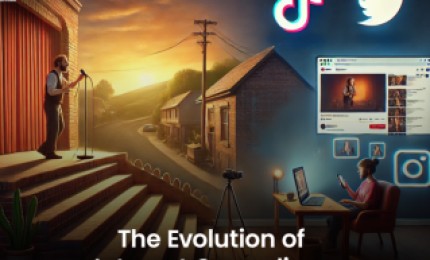The film industry is rapidly harnessing the power of artificial intelligence (AI) to enhance various stages of film production, from scriptwriting to marketing. AI is not only optimising operational efficiencies but also bringing creative insights that are transforming traditional filmmaking practices.
AI's role in the film industry begins in the scriptwriting phase. Advanced tools like ScriptBook utilise natural language processing (NLP) to conduct thorough analyses of scripts. This technology evaluates potential box office performance and provides detailed feedback on plot structure and character dynamics. A notable application was by 20th Century Fox for the film "Logan," where AI insights contributed to shaping critical narrative decisions, enhancing the film’s thematic depth and audience appeal.
In pre-production, AI is revolutionising tasks such as casting and location scouting. For instance, Warner Bros. has implemented Cinelytic’s AI platform to assist in casting by analysing actors' historical data and predicting their potential impact on a film's financial outcomes. This data-driven approach helps studios make strategic casting choices that align with market trends and audience preferences.
AI also significantly streamlines the location scouting process. By analysing extensive databases of geographical and architectural footage, AI algorithms can quickly identify and recommend filming locations that match the scenic requirements of a screenplay. This capability not only saves time but also reduces the logistical complexities traditionally associated with manual scouting methods.
These advancements in AI technology are proving to be invaluable in enhancing the creative and operational aspects of film production, leading to more informed decisions and potentially higher-quality cinematic outcomes.
(AI) is increasingly integral to the filmmaking process, particularly in the realm of visual effects (VFX). One of the standout applications is Disney’s FaceDirector software, which allows for the digital manipulation of an actor's emotions across multiple takes. This technology enables directors to seamlessly blend expressions from different performances, enhancing emotional continuity in scenes. A prominent use of this was in "Avengers: Infinity War," where it helped refine the facial expressions in CGI-heavy sequences, ensuring they conveyed the intended emotional impact.
Additionally, AI technologies like deepfake are revolutionising traditional filmmaking techniques. Despite ethical debates, this technology was employed in "The Irishman" to de-age actors, achieving a naturalistic portrayal of characters at different life stages without the exorbitant costs typically associated with such high-level CGI work.
AI's influence extends to other post-production processes such as colour grading and editing. For example, IBM Watson showcased its capabilities by autonomously creating the trailer for the film "Morgan." It analysed extensive datasets from numerous movie trailers to learn what visual and auditory elements most effectively capture audience attention, applying these insights to produce a compelling trailer.
These advancements highlight AI's growing role in enhancing the creative possibilities within the film industry, from streamlining production workflows to enabling new forms of narrative expression through sophisticated visual effects.
(AI) is revolutionising post-production by streamlining complex processes and reducing both time and costs. Adobe Sensei, a powerful AI tool, exemplifies this transformation by automating labour-intensive tasks in video editing. This includes the automatic removal of unwanted objects from frames, rapid scene stabilisation, and efficient colour correction, which previously consumed extensive manual effort and time.
In the domain of sound design, AI's capabilities are equally transformative. Skywalker Sound, a branch of Lucasfilm known for its audio post-production, leverages AI to enhance its operational efficiency. The organisation utilises AI algorithms to manage their extensive sound effects library. These algorithms categorise, tag, and index thousands of audio files, enabling sound designers to quickly retrieve specific sounds needed for a project. This automation significantly accelerates the sound design process, allowing creators to focus more on the creative aspects of sound engineering rather than on mundane retrieval tasks.
Moreover, AI-driven tools are also capable of generating realistic soundscapes autonomously, which can be particularly beneficial for creating ambient noises or background sounds in films. This technology not only speeds up the production but also allows for a more precise and tailored sound environment, enriching the overall auditory experience of the audience. These advancements in AI for post-production and sound design are pivotal in enhancing the efficiency and creativity of film projects, setting new standards in the industry.
(AI) plays a pivotal role in the modern landscape of film distribution and marketing, transforming how movies reach and engage audiences. Streaming services like Netflix employ sophisticated AI algorithms to analyse viewing patterns and preferences, enabling them to recommend films and series tailored to individual tastes. This personalised approach not only improves viewer satisfaction but also boosts engagement and retention rates by presenting users with content that aligns closely with their interests.
In the realm of marketing, AI's capabilities extend to analysing vast amounts of social media data to understand audience sentiments and trends. This data-driven insight allows studios to tailor their marketing strategies effectively. For instance, Warner Bros. harnessed AI to fine-tune the promotional efforts for 'Aquaman,' analysing potential audience segments and their behaviour, which contributed significantly to the film’s global box office success.
Moreover, AI is innovating direct audience interaction through the use of intelligent chatbots. These AI-driven chatbots are deployed during promotional campaigns to engage with viewers in a conversational manner, providing information, answering queries, and even delivering personalised content. A notable example of this technology was the promotional campaign for the horror film 'Morgan,' where a chatbot was programmed to mimic interactions as if it were a character from the movie, offering a unique and immersive experience that deepened viewer engagement and heightened anticipation for the film’s release.
These advancements in AI for distribution and marketing not only streamline operations but also create more meaningful connections with audiences, leading to more strategic and successful film releases.
As we look ahead, the role of artificial intelligence (AI) in film production continues to expand, promising groundbreaking changes across various facets of filmmaking. AI's integration into movie studios is not just about enhancing current practices but reshaping them entirely, opening up unprecedented possibilities for innovation and efficiency.
Virtual Filmmaking: One of the most exciting prospects is the development of virtual filmmaking technologies. AI can assist in crafting detailed virtual environments, eliminating the need for extensive physical sets. This shift could dramatically lower production costs and logistical challenges while providing filmmakers with unparalleled creative flexibility. Virtual sets enabled by AI could be adjusted and manipulated in real-time, allowing directors and cinematographers to experiment with different settings and lighting conditions instantly.
Predictive Storytelling: AI's potential to transform narrative development is profound. By analysing data on audience preferences and emerging societal trends, AI systems could offer predictive insights into plot developments, themes, and genres likely to succeed. This proactive approach to storytelling could help studios produce content that resonates more deeply with viewers, potentially leading to higher engagement and box office success.
Enhanced Immersive Experiences: AI is set to revolutionise viewer engagement through advanced immersive technologies like augmented reality (AR) and virtual reality (VR). By integrating AI, these technologies can offer more dynamic and interactive storytelling elements, making cinematic experiences more engaging and emotionally compelling. AI could customise these experiences to individual viewers, adjusting storylines in real-time based on viewer reactions and interactions.
Personalized Movie Marketing: Beyond production, AI is poised to transform how films are marketed and distributed. Emerging technologies allow AI systems to analyze complex psychographic and neurolinguistic data from potential viewers. Such capabilities could enable studios to tailor marketing efforts to individual preferences, making promotional content more relevant and effective. AI could predict which aspects of a film will appeal to different segments of the audience, crafting personalised marketing messages that resonate on a more personal level.
Neuro Cinematic Engagements: Companies like 3XM Technologies are at the forefront, harnessing AI to understand viewer responses at a neurological level. This neurocinematic approach could allow filmmakers to fine-tune elements of a film based on cognitive and emotional responses, ensuring that every scene is crafted to maintain engagement and impact.
The integration of AI in the film industry represents a confluence of art and science, where technology serves as both a catalyst for creativity and a tool for enhancing the viewer's experience. As AI technology continues to evolve, its potential to transform the film industry from scriptwriting to audience engagement remains limitless. The future of filmmaking, rich with AI-driven innovations, promises a more personalised, immersive, and creatively liberated cinema experience.
The film industry is undergoing a significant transformation, driven by the integration of Artificial Intelligence (AI). From scriptwriting to post-production and marketing, AI is not only streamlining workflows but also enhancing creative processes, allowing for more personalised and engaging storytelling. As AI technologies continue to evolve, they offer exciting possibilities for future filmmaking, including virtual filmmaking, predictive storytelling, and enhanced immersive experiences. This technological revolution promises to redefine the cinematic landscape, providing filmmakers with innovative tools to tell stories that captivate and resonate with audiences around the globe. Are you ready to harness the potential of AI in your filmmaking projects? Join All Talent today to access cutting-edge AI tools and expertise that can elevate your film production to the next level. Whether you’re looking to optimise your script, enhance your marketing strategies, or explore new creative possibilities, All Talent is your partner in navigating the dynamic world of film. Let’s transform your cinematic visions into reality. Visit us at [All Talent Website] to start your AI-driven filmmaking journey now!

15 Ways to Make Money as a Singer: A Complete Guide to Monetizing Your VoiceEarning money as a singer requires more than just talent, it demands creativity, persistence, and a willingness to explore...
Read Blog
When Kunal Kamra's Humor Got Him Into Trouble: A Deep Dive into the Controversies of India's Most Fearless ComedianKunal Kamra Controversy: Laughter, Lawsuits, and the Limits of Free SpeechStand-up...
Read Blog
The Oscar race is always full of drama, but this year? It’s absolute chaos. From shocking controversies to unexpected winners, the battle for Best Picture at the 2024 Academy Awards has taken...
Read Blog
In the ever-changing landscape of entertainment, few transformations have been as dramatic and swift as the rise of internet comedians. What began as a platform for amateur funny videos has evolved...
Read Blog
Introduction: In the competitive world of entertainment and talent, having the right representation can make all the difference in launching and sustaining a successful career. Whether you're...
Read Blog.jpg)
While the world of modelling often dazzles with glitz and glam, it's also critical we discuss its darker shades, pulling the curtain back on some challenging realities. Today, let's embark on...
Read Blog